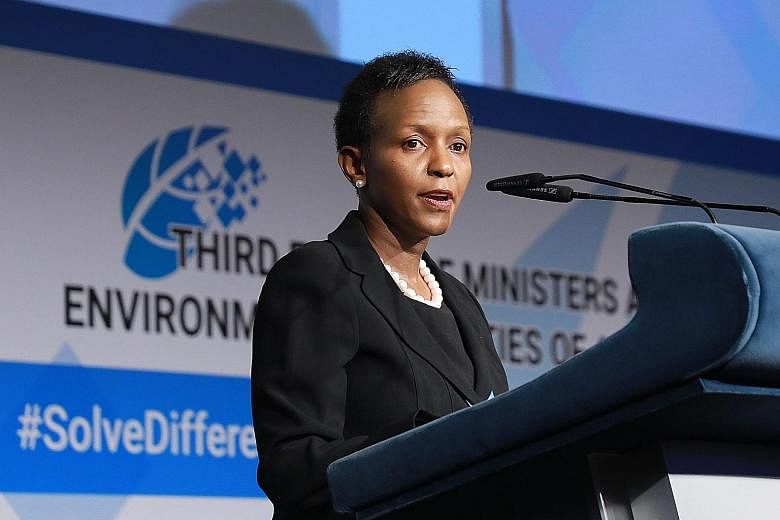Asia's burgeoning mega cities have become toxic traps for many and face worsening air pollution and waste as well as rising heat stress because of climate change and more energy use.
Yet they also represent a great opportunity to fix the region's pollution crisis, a top United Nations official said yesterday.
It might sound counter-intuitive. But because much of the pollution stems from cities, where a growing proportion of the region's people live, fixing the crisis in urban centres can make a huge impact in tackling environmental damage.
Ms Joyce Msuya, acting executive director of UN Environment, said the sheer concentration of humanity and economies of scale make it financially viable to find solutions to tackle pollution and waste in cities, especially in Asia. "Cities are enormous opportunities," she told The Straits Times on the sidelines of the third Forum of Ministers and Environment Authorities of Asia-Pacific at Marina Bay Sands.
"When you think about everything to do with the environment in terms of interventions, almost everything benefits from economies of scale. And when you have concentration, meaning huge populations in urban areas, as a government, as a private sector entity, as a citizen, it's much easier to focus on a Manila rather than dispersed cities."
Getting to grips with the region's waste and pollution crisis has become urgent as populations and cities grow. Cities produce the majority of mankind's greenhouse gas emissions and produce large amounts of household and industrial waste.
About a third of the food produced for consumption is wasted, said the UN. This is also the most chemical-intensive era of humankind, harming health and ecosystems, while energy consumption has greatly increased in developing countries in the Asia-Pacific region, driven by rapid growth of the middle class.
"Pollution is becoming the defining feature of our cities, countries and waterways," Ms Msuya said in a speech to delegates yesterday.
For waste management, the key is designing the right policies that encourage waste collection and recycling, such as financial incentives, she told The Straits Times.
"How do you change the conversation on waste and consumption? One is us, as consumers, making choices. The other is turning the waste conversation into an opportunity. Link it to youth unemployment rates, such as creating jobs."
This could mean, for example, incentivising plastic waste collection and encouraging the plastic to be turned into useful products. "Businesses are absolutely a central part of the solution," she said. "If you think about plastics, how are they produced, the whole supply chain, it starts with the private sector."
She pointed to the value of governments providing incentives to businesses to produce more sustainable alternatives to plastics. "Also, most businesses worry about their shareholders. We (UN Environment) are trying in our marine litter programme to partner company boards to advocate why switching to sustainable alternatives to plastics is a good thing for the environment."


